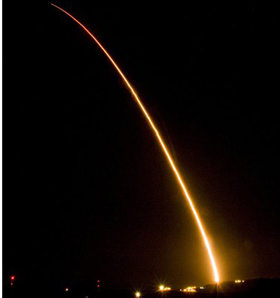| Home | Blog | Ask This | Showcase | Commentary | Comments | About Us | Contributors | Contact Us |

Ask Obama the hair-trigger alert questionASK THIS | March 76, 2009How many ballistic missiles do the U.S. and Russia have pointed at each other, ready to be set off in an instant? Will you work with Russia to bring down the threat level? By Morton Mintz Questions for President Obama involving nothing less than a wholly unnecessary but persisting threat to the survival of Planet Earth need to be asked by a White House correspondent. But first a bit of background. None other than George W. Bush warned of the threat during his presidential candidacy. In a speech in Washington on May 23, 2000, he had two themes. The mainstream press reported on one, the purported need for Star Wars. But it ignored the other despite its extreme importance. Here is what was brushed off: The United States should remove as many weapons as possible from high-alert, hair-trigger status--another unnecessary vestige of cold war confrontation. . .For two nations at peace, keeping so many weapons on high alert may create unacceptable risks of accidental or unauthorized launch. So, as president, I will ask for an assessment of what we can safely do to lower the alert status of our forces. It's worth recalling a New York Times "Editorial Observer" piece by Carla Anne Robbins last June 30. The "who's who of the national security establishment," as she called it, urged "the United States to lead a global campaign to devalue and eventually rid the world of nuclear weapons." George Shultz, Henry Kissinger, William Perry and Sam Nunn--two former secretaries of state, a former secretary of defense and a former chairman of the Senate Armed Services Committee--are not men "given to casual utopianism - or anything casual," Robbins wrote. "They are trying to shock sensibilities." She continued:
I believe something I wrote in a previous piece for this site bears repeating: "It is nothing less than indefensible for the mainstream media to all but kiss off the threat to the planet that the United States and Russia needlessly perpetuate by keeping thousands of planet-threatening nuclear weapons "ready to launch within minutes." Questions of a different order are triggered by the repugnant shenanigans of a powerful senior Congressman. "The two advisers included a lobbyist for PMA, a firm with close ties to Murtha that is the subject of a federal probe into whether it made illegal contributions by reimbursing donors to the Pennsylvania lawmaker and other members of Congress. The Electro-Optics Center also relied on advice from a longtime Murtha friend who now works on the congressman's appropriations staff." This suggests questions to President Obama along these lines: Public financing of federal election campaigns would deter such plausibly illegal campaign contributions as those made to Pennsylvania Congressman John Murtha. Are you for or against public financing?
|




